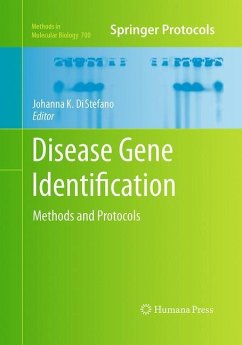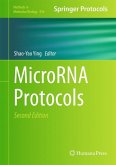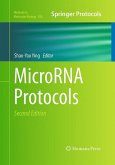Recent efforts to characterize genetic variation in the human genome, coupled with the rapidly developing field of genomics, have lead directly to the development of new and innovative approaches to the identification of genes contributing to complex human diseases. In Disease Gene Identification: Methods and Protocols, expert researchers in the field provide up-to-date molecular methodologies used in the process of identifying a disease gene, from the initial stage of study design to the next stage of preliminary locus identification, and ending with stages involved in target characterization and validation. As a volume in the highly successful Methods in Molecular Biology(TM) series, chapters contain brief introductions to their respective topics, lists of the necessary materials and reagents, step-by-step, readily reproducible laboratory protocols, and detailed tips on troubleshooting and avoiding known pitfalls.Authoritative and essential, Disease Gene Identification: Methods and Protocols seeks to aid scientists striving toward the identification and characterization of the many disease-related genes, which may someday pave the way for more accurate and improved methods of disease diagnosis as well as vital strategies for disease treatment and prevention.
From the reviews:
"This is an excellent resource for innovative approaches to the identification of genes contributing to complex human diseases. ... presenting detailed laboratory procedures in an easy-to-follow format that can be carried out successfully by competent experts lacking exposure to a specific research method. ... will be useful for clinicians such as oncologists interested in learning about gene identification. ... an excellent resource for graduate students, postdoctoral researchers, bench scientists, clinical oncologists, and hematologists interested in the fields of molecular genetics and molecular biology." (Omer Iqbal, Doody's Review Service, June, 2011)
"This is an excellent resource for innovative approaches to the identification of genes contributing to complex human diseases. ... presenting detailed laboratory procedures in an easy-to-follow format that can be carried out successfully by competent experts lacking exposure to a specific research method. ... will be useful for clinicians such as oncologists interested in learning about gene identification. ... an excellent resource for graduate students, postdoctoral researchers, bench scientists, clinical oncologists, and hematologists interested in the fields of molecular genetics and molecular biology." (Omer Iqbal, Doody's Review Service, June, 2011)








